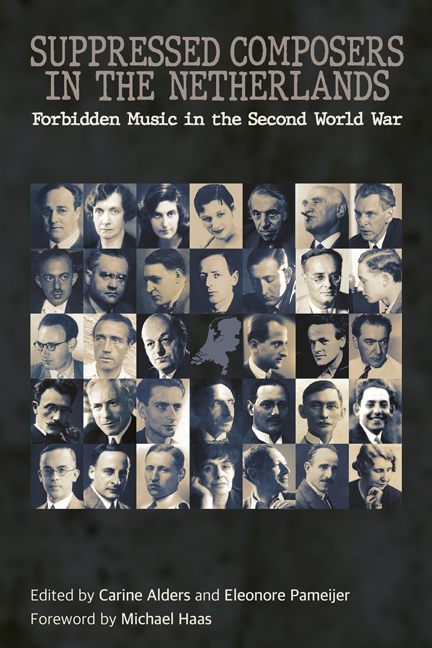6 - Sem Dresden
Published online by Cambridge University Press: 09 May 2024
Summary
Sem Dresden was of pivotal importance to Dutch musical life, working as a choral conductor and director of the Conservatoires in Amsterdam and The Hague. His legendary composition classes had a major impact during the inter-war period. In spite of his German-influenced teachers, he was attracted early on to modern French music, but developed his own refined and sober style.
He was born on 20 April 1881, in Amsterdam, into an Ashkenazi Jewish family originating from the Prussian town of Danzig, today Gdansk in Poland. Both his father and grandfather were diamond workers in Amsterdam. His father, Marcus, became a successful broker in that industry, and had close contacts with Henri Polak, founder of the Dutch Diamond Workers’ Union. Although a member of the Dutch-Jewish religious community, the Dresden family was influenced by the increasing secularisation, which began in the nineteenth century through social integration and assimilation. Some Jewish rituals and holidays, although not ignored, were celebrated only within the family circle.
There was a piano in the family home and his father sang in a diamond workers’ choir, The United Singers, and was the chairman of its board for several years. Its conductor, Maurice Hageman, gave Dresden both his first violin and piano lessons at the age of six, and his father took him to the choir rehearsals. A few years later he took violin lessons with J. C. Dudok Sr and Felice Togni, a member of the Concertgebouw Orchestra. At twelve, Dresden joined the Amstels Brass Band, comprising mainly Jewish musicians, under the direction of David Koning Jr. He played the trumpet and timpani, and even as a youngster his appetite for music was insatiable. He wanted to become a professional musician, but his father had other plans for him. Dresden effortlessly completed high school and at the age of sixteen obtained a diploma from the Public Business School. He worked for some time in an office, although very reluctantly, and, despite paternal protests, soon decided to pursue his passion for music.
In an eight-month period, he studied music theory with Frederik Roeske, who introduced him to Bernard Zweers (1854–1924), also a composer, and a teacher at the Amsterdam Conservatoire.
- Type
- Chapter
- Information
- Suppressed Composers in the NetherlandsForbidden Music in the Second World War, pp. 75 - 84Publisher: Boydell & BrewerPrint publication year: 2024



